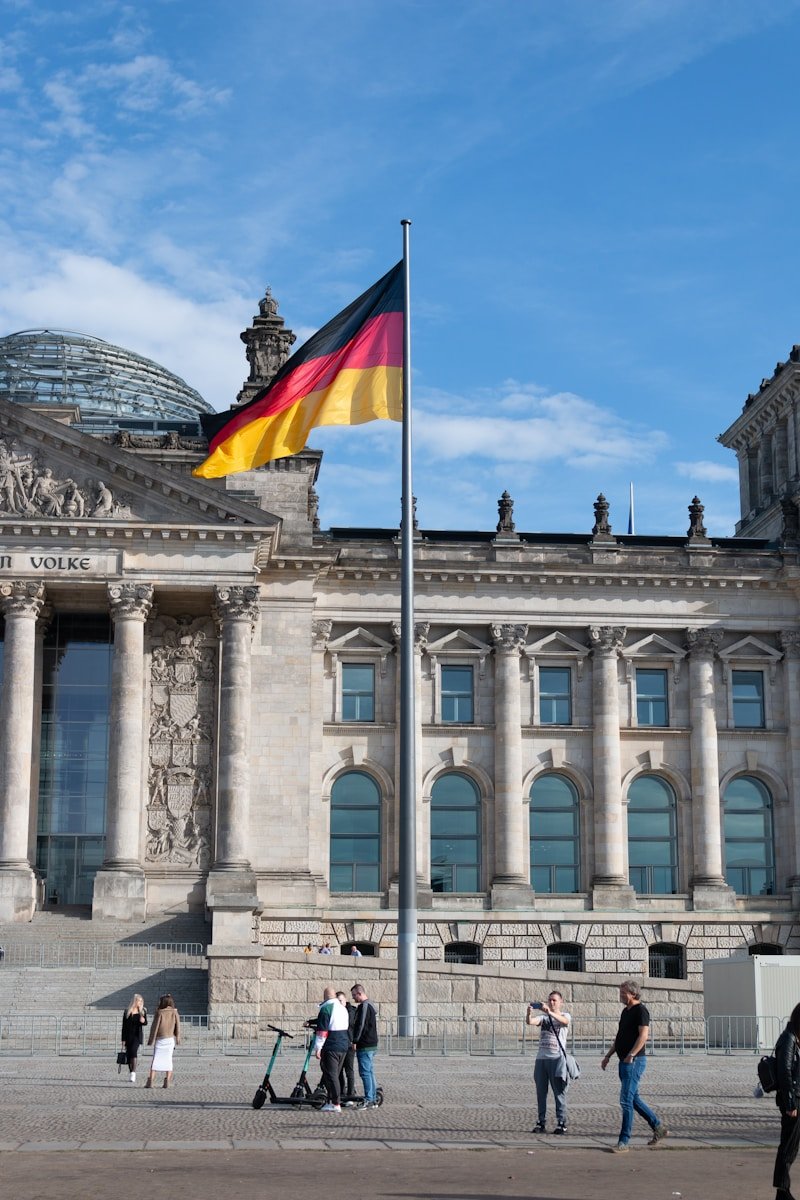
(Source : Axios) Why it matters: The Trump administration’s immigration policies have escalated into a global controversy, with reports of U.S. tourists, permanent residents, and foreign nationals being arrested, detained, and deported under increasingly stringent measures. Critics argue that these actions are not only targeting individuals for minor infractions but also for their political stances, activism, or even misunderstandings, raising serious concerns about civil liberties, academic freedom, and due process.
French Scientist Detained Over Critical Text Messages
A French scientist was recently barred from entering the U.S. after immigration officials discovered text messages on his phone that were critical of the Trump administration’s academic research policies. The researcher, whose identity has not been disclosed, was traveling to a conference near Houston when he was detained and subsequently denied entry. French officials confirmed the incident, sparking outrage in academic circles.
Philippe Baptiste, France’s Minister of Higher Education and Research, condemned the detention, stating, “Freedom of opinion, free research, and academic freedom are values that we will continue to proudly uphold. I will defend the right of all French researchers to be faithful to them, while respecting the law.” Baptiste has called for an emergency meeting with European ministers to address the issue and protect academic freedom.
The incident has reignited debates about the U.S.’s commitment to intellectual exchange and free speech, with critics accusing the administration of using immigration enforcement to silence dissent.
Welsh Artist Detained Over Visa Misunderstanding
Rebecca Burke, a 28-year-old artist from Wales, was detained by U.S. immigration officials on February 26 during what was supposed to be “the trip of a lifetime across North America.” Burke, who had been staying with host families and helping with chores in exchange for lodging, was flagged when she attempted to cross into Canada. Authorities claimed she needed a work visa for her activities, despite her tourist status.
Burke was denied re-entry to the U.S., classified as an “illegal alien,” and taken to a detention facility in Tacoma, Washington, where she was held for weeks. Her family described the ordeal as traumatic and unnecessary, emphasizing that she had no criminal record and was simply traveling as a tourist.
The case has drawn criticism from human rights advocates, who argue that the Trump administration’s rigid enforcement policies are ensnaring innocent individuals in a web of bureaucratic overreach.
Pro-Palestinian Activist Arrested, Sparking Free Speech Concerns
Mahmoud Khalil, a lawful permanent U.S. resident and Columbia University alumnus, was arrested by federal agents in a move that has alarmed free speech advocates. Khalil, who was involved in pro-Palestinian encampments at Columbia last year, is accused of “actively supporting” Hamas, though he has not been charged with a crime.
The Department of Homeland Security (DHS) claims to have evidence of Khalil’s involvement with Hamas, but his attorneys argue that his arrest is politically motivated and violates his First Amendment rights. The case has become a flashpoint in the ongoing debate over the limits of free speech and the government’s role in policing political activism.
Georgetown Researcher Arrested in Midnight Raid
Badar Khan Suri, a Georgetown University graduate student from India, was arrested at his Arlington, Virginia, home by masked federal agents who claimed his student visa had been revoked. Suri, who is accused of spreading “Hamas propaganda” and promoting antisemitism on social media, was detained despite having no criminal record.
DHS spokesperson Tricia McLaughlin stated that Suri had “close connections to a known or suspected terrorist,” but his attorneys have challenged the legality of his detention. A judge has temporarily blocked Suri’s deportation, pending further court orders. The case has raised questions about the use of social media as evidence in immigration enforcement and the potential for racial profiling.
Brown University Doctor Detained After Attending Funeral
Dr. Rasha Alawieh, a Lebanese citizen and H-1B visa holder, was detained upon her return to the U.S. after attending the funeral of Hezbollah leader Hassan Nasrallah in Beirut. Alawieh, who was offered an assistant professorship at Brown University, was held for questioning and faced potential deportation.
The incident has sparked concerns about the targeting of individuals based on their national origin or political affiliations, with critics arguing that Alawieh’s detention undermines the U.S.’s reputation as a hub for international talent and academic collaboration.
Canadian Entrepreneur Detained During Routine Visa Meeting
Jasmine Mooney, a Canadian entrepreneur, was detained at the San Diego border while undergoing a routine process to obtain a work visa. Mooney, whose visa had already been approved, was held for two weeks without explanation or access to legal counsel.
“There was no warning,” Mooney wrote in The Guardian. “One minute, I was talking to an officer about my visa. The next, I was being patted down like a criminal and sent to an ICE detention center.” Her case highlights the unpredictability of U.S. immigration enforcement and its impact on individuals seeking to comply with the law.
Germans Detained, Prompting Updated Travel Advisories
German authorities have updated travel advisories for the U.S. following the detentions of several German nationals. Lucas Sielaff, 25, was detained for two weeks after a language barrier led to a misunderstanding about his residence status. Jessica Brösche, 29, was held for over six weeks, including eight days in solitary confinement, after border officers assumed she intended to work illegally in the U.S. due to her tattoo equipment. Fabian Schmidt, 34, a permanent U.S. resident, was detained after returning from a trip to Luxembourg.
These cases have strained U.S.-German relations and raised questions about the fairness and transparency of U.S. immigration policies.
The Bigger Picture: A Global Backlash
The Trump administration’s immigration crackdown has drawn widespread criticism from governments, human rights organizations, and academic institutions worldwide. Critics argue that the aggressive enforcement tactics are not only targeting individuals for minor infractions but also stifling free speech, academic freedom, and international collaboration.
As the U.S. continues to tighten its borders, the global community is left grappling with the implications of these policies on diplomacy, human rights, and the free exchange of ideas. The question remains: At what cost does the U.S. pursue its immigration goals, and who will bear the brunt of these increasingly controversial measures?



